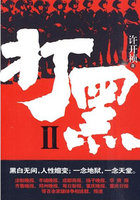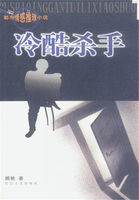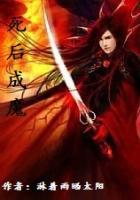After this incident,the bushman had a long conversation withColonel Everest.It was his opinion,based upon what almost amounted to proofs,that the little troop was being followed and watched,and was consequently threatened with attack.If the Makololos had not yet attacked,it was because it suited them better to draw them farther north,into the region habitually frequented by these marauders.
In the presence of this danger ought the Colonel to turn back?Ought he to interrupt the work hitherto carried out so successfully?What Nature had been unable to do would the native Africans succeed in doing?Could they hinder English savants from accomplishing their scientific task?This was a very grave question,and one which had to be answered.
Colonel Everest begged the bushman to give him what information he could about the Makololos,and was replied to along these lines.
The Makololos belong to the great tribe of the Bechuanas,and are the last who are met with towards the equator.In 1850 Dr.David Livingstone,during his first journey to the Zambezi,was received at Sesheke,the usual residence of Sebitouane,then the great Makololo chief,the formidable warrior who in 1824 threatened the Cape frontier.Sebitouane,who was a remarkably intelligent man,gradually obtained a supreme influence over the scattered tribes of Central Africa,and succeeded in making of them a compact and dominant group.In 1853—a year ago—this chief died in David Livingstone’s arms,and his son Sekeleton succeeded him.
At first Sekeleton showed much sympathy towards the Europeans who traded along the shores of the Zambezi.Dr.Livingstone had personally nothing to complain of.But after the celebrated traveller’s departure the African king’s manner changed considerably.Not only foreigners but the neighbouring natives were being harassed by him and his warriors.To annoyance soon followed robbery,and that on a grand scale.Makololos ravaged the country,especially between Lake Ngami and the Upper Zambezi.Nothing was more unsafe than to venture into that country with a caravan reduced to a small number of men,especially when this caravan was expected,and probably meant for certain destruction.
The bushman added he thought it his duty to tell Colonel Everest the whole truth.For his part he should obey the Colonel’s orders,nor would he hang back if they decided to march onwards.
Colonel Everest consulted his colleagues,and it was settled that,come what might,the triangulation should be continued.Nearly five-eighths of the arc had already been measured.
Whatever might happen,the English owed it to themselves and their country not to abandon the operation.
This decision taken,the trigonometrical work was continued.On 27th October,the Commission cut the tropic of Capricorn perpendiculary,and after having constructed its forty-first triangle,it proved by zenith observations that another degree of the meridian had been measured.
For a whole month the triangulation was pressed forward without meeting any natural obstacles.In this country so charmingly varied,intersected only by streams easy to cross and not by rivers of any importance,the astronomers worked quickly and well.Mokoum was always on the look out ahead or on the flanks of the caravan.No immediate danger seemed to threaten the little troop,and very possibly the bushman’s apprehensions might not be realised.At least during November no marauders had showed themselves,nor did they ever find any trace of the native who had followed the expedition so persistently from the cairn on the edge of the forest.
Yet more than once,although the danger seemed far away,the bushman noticed signs of hesitation among his Boschjesmen.It had been impossible to conceal the incidents at the cairn and the oryx hunt from them,and they regarded a clash with the Makololos as inevitable.
Makololos and Boschjesmen are two hostile tribes which show no pity to one another.Thus their small number might well alarm the natives who formed the escort diminished as it was by half since the declaration of war.The Boschjesmen realised that they were already more than three hundred miles from the Orange River and that it was proposed to lead them at least two hundred miles further north.This prospect made them pause.Before he had engaged them,it is true,Mokoum had admittedly not sought to disguise from the inevitable fatigues they would have to endure;but the moment the danger of a clash with their inveterate enemies was added to these fatigues,that circumstance modified their outlook.Then began complaints,regrets,and a general ill-will,which Mokoum pretended not to see or hear,but which greatly added to his uneasiness.
An accident which happened on 2nd December stimulated the discontent in the minds of the superstitious Boschjesmen and almost drove them into open rebellion against their leaders.
The previous evening the weather,hitherto so fine,became overcast.Under the influence of a tropical heat,the vapoursaturated atmosphere indicated great electric pressure.A storm was evidently impending,and in these climates storms quickly break out with very great violence.
On the morning of the 2nd December the sky became covered with lowering clouds,which could not deceive a meteorologist.They looked like balls of cotton,some tinted dark grey,some the colour of copper,while the sun itself was partially obscured and dull.The air was calm and the heat most oppressive;the fall in the barometer had ceased since the previous evening;not a leaf was stirring in the trees.
The astronomers had noticed the appearance of the sky,but they had not thought it necessary to stop work.William Emery,accompanied by two sailors and four natives with a waggon,had then gone two miles east of the meridian to set up a signal pylon meant to form the apex of a triangle.He was erecting this on the summit of a hillock,when a rapid condensation of vapour under the influence of a great current of cold air caused a considerable development of electricity.Almost at once the ground was covered with hailstones,and(a very unusual phenomenon)these hailstones were bright and shining;they,might have been compared to drops of molten metal.Sparks flew from the ground wherever it struck,and flashes leaped from the metal-work of the wag gon which carried the equipment for erecting the pylon.
These hailstones soon got considerably larger.It was like being stoned,almost dangerous to be exposed to them.Nor was their intensity unprecedented,for Dr.Livingstone had seen the glass windows of the mission house at Koloberg broken,and horses and antelopes killed,by the hailstones.
Without losing an instant William Emery abandoned his work and called to his men to seek in the waggon a shelter less dangerous in such a storm than that of a tree.Hardly had he left the hillock when a dazzling flash of lightning,immediately followed by a violent clap of thunder,seemed to set the whole atmosphere ablaze.
Emery was struck down like a dead man.The two sailors,momentarily dazzled by the lightning,rushed towards him.But,fortunately,the thunderbolt had spared the young man;by one of those unaccountable effects which certain cases of persons struck by lightning present,the flash had,so to speak,passed round him,enveloping him in a sheet of electricity;but its progress had been attested:it had melted the steel point of the compasses which he was holding in his hand.
He was promptly attended to by the sailors,and soon recovered his senses,but he had been neither the only nor the worst victim of this thunder-stroke.Two natives lay dead by the signal pylon,twenty paces apart;one was burnt to a cinder,though his clothes were untouched;the other had been struck on the skull and was stone dead.
Thus the three had been struck down by the three-pointed flash of lightning.Rare,but sometimes seen,is this trisection of the flash,whose angular divergence is often great.
The Boschjesmen,terrified by the fate of their comrades,ran away in spite of the shouts of the sailors.Though the effect of their movement on the air might have attracted the lightning,they would listen to nothing,and returned to camp as fast as their legs could carry them.
The two sailors,after having carried William Emery to the waggon,laid in it the bodies of the two natives,and took shelter in it themselves;they were already severely bruised by the hailstones which were falling like a shower of stones.For threequarters of an hour the storm raged with great violence;then it began to ease,the hail stopped falling,and the waggon was able to take the road back to camp.
The news of the death of the two natives had preceded them.It produced a most disastrous effect upon the minds of the Boschjesmen,who could not regard these trigonometrical operations,which they could not understand,with-out a feeling of superstitious terror.They held a consultation,and some of the worst-disposed ueclared they would go no farther.This was the beginning of an outbreak which threatened to lead to serious consequences,and it required all the influence the Bushman had over them to put down this revolt.Colonel Everest had to interfere and promise these poor people an increase of pay to induce them to remain in his service.It was not without some trouble that order was at last restored;at one time the future of the expedition was seriously compromised;for what would have become of the members of the commission in the middle of the desert,far from any town,with no escort to protect them,or drivers for their waggons?At last this difficulty seemed to be overcome,and as soon as the two natives were buried the camp was struck,and the little troop directed its course towards the hillock where two of its members had met their death.
William Emery felt the effects of the stroke for several days;his left hand,which had held the compasses,was paralysed for some time;but at last the numbness went off,and he was able to resume his work.
During the eighteen days which followed nothing occurred worthy of notice.No Makololos showed themselves,and Mokoum,though still distrustful,began to feel more confident.They were not more than fifty miles from the desert,and this karrou remained what it had hitherto been,a magnificent country,whose vegetation,fed by the fresh water in the soil,was unsurpassed anywhere on the globe.In this desert neither men,in a region so fertile and so abounding in game,nor beasts of burden standing,as they did,up to their knees in these luxuriant pastures,could ever be in want of food.But the travellers had reckoned without the locusts,whose appearance is a curse always hanging over all agricultural work in South Africa.
On the evening of 20th December,about an hour before sunset,the camp had been pitched.The three Englishmen and the bushman were seated at the foot of a tree,resting from the fatigues of the day and talking over their future plans;the north wind slightly cooled the atmosphere.
The astronomers had agreed to take a sidereal observation that night to ascertain the exact latitude of the spot.The sky was cloudless,the moon was nearly new,the stars were shining brightly,so that these delicate observations could not be made under more favourable circumstances.Colonel Everest and Sir John Murray were therefore much disappointed when about eight William Emery rose to his feet and pointed to the north saying-
‘Look at those clouds on the horizon.I’m afraid the night won’t be so fine as we expected.’
‘True,’replied Sir John;‘that great cloud is coming this way,and as the wind is rising the sky will soon be covered.’
‘Do you think there’s another storm brewing?’asked the Colonel.
‘We are in an intertropical region,’said William Emery,‘and it may be so.I think it very doubtful whether we shall take any observations tonight.’
‘What do you think of it,Mokoum?’asked the Colonel.
The bushman looked attentively northward.The cloud was sharply defined by a long curved line,as distinct as if drawn by a compass,the segment it described above the horizon extending for three or four miles.This cloud,which was as dark as smoke,struck the bushman by its singular appearance.Sometimes the setting sun lit it up with red streaks,which it reflected as if it had been some solid body,and not a mere collection of vapour.‘A very strange cloud,’said Mokoum,without explaining himself further.
Shortly afterwards one of the Boschjesmen came to tell the hunter that the horses and cattle were showing evident signs of uneasiness;they were galloping about the pasture,and refusing to come into the camp.
‘Then let them pass the night outside,’replied Mokoum.
‘But the wild beasts?’
‘Oh,the wild beasts will soon have too much to think about to pay any attention to them.’
The native retired.Colonel Everest was about to ask the bushman to explain,but Mokoum had stepped a few paces on one side,and seemed entirely taken up with contemplating this phenomenon,whose nature he evidently suspected.
The cloud was approaching rapidly.They could see how low it was,not more than a few hundred feet above ground.A sort of formidable buzzing,if these two words can be used together,accompanied the whistling of the wind,which had now begun to blow more strongly,and this buzzing seemed to proceed from the cloud itself.
Just then a swarm of dark specks appeared against the pale sky just above the cloud.These specks flew about,occasionally darting down into the cloud and then rising;they might have been counted by thousands.
‘What are those black specks?’asked Sir John Murray.
‘Those black specks are birds’replied the bushman.‘They’re vultures,eagles,hawks,and crows;they come from afar;they’re following this cloud,and they won’t leave it until it is destroyed or dispersed.’
‘And what is this cloud?’
‘It is not a cloud,’Mokoum stretched his hand in the direction of the dark mass,which was already covering a fourth of the sky;‘it’s a living cloud—it’s a cloud of locusts.’
The hunter was not mistaken.The Europeans were about to behold one of those terrible invasions of locusts,unfortunately of too frequent occurrence,which in a single night change a fertile smiling district into a dry barren desert.These crickets,or locusts,the gryllii devastatorii of the naturalist,make their appearance by millions.Have not some travellers seen a shore covered with a bank of these insects four feet high,and fifty miles long?
‘Yes,’resumed the bushman,‘these living clouds are a fearful scourge to the country;we must trust heaven that it won’t do us too much harm.’
‘But here,’said Colonel Everest,‘where we have neither growing crops nor meadows belonging to us,what have we to fear from these insects?’
‘Nothing,if they pass over our heads,’replied the bushman;everything,if they alight on the tract we have to cross.Not a leaf will be left on the tree,not a blade of grass in the meadow;and you forget.Colonel,that if our wants are provided for,that of our horses,mules,and oxen are not.What to become of them in these devastated pastures?’
The bushman’s companions kept silent for some moments,watching the rapidly increasing mass of animal life.The buzzing increased,but the screams of the eagles and hawks,as they flew down on this inexhaustible swarm and devoured the locusts by thousands,were louder still.
‘Do you think they’ll settle in this region?’Emery asked Mokoum.
‘I’m afraid so,’the hunter replied;‘the north wind is driving them directly this way.Then the sun’s beginning to set;the fresh evening breeze will weigh down the locusts’wings;they’ll settle down on the trees,bushes,prairies,and then—’
The bushman did not finish his sentence.In a moment this enormous cloud was on the ground:there was nothing but a dark swarming mass all round the camp as far as eye could reach.The camp-ground was literally swamped with them.Waggons and tents disappeared under this living hail,and the soil was covered a foot deep.The Englishmen were half-way up to their knees in them,and crushed them by hundreds at every step.But what was that to such a multitude?
And yet means of destroying were not lacking.The birds of the air,hoarsely screaming,were greedily devouring them;snakes were crawling through them,and swallowing them by thousands;horses,oxen,mules and dogs were feeding on them;the game animals,as well as the beasts of prey,lions,hyaenas,elephants,and rhinoceroses,were swallowing bushels of them.And even the Boschjesmen themselves,who consider these‘shrimps of the air’a great luxury;were eating them as though they were manna from heaven.But their number defied all these means of destruction and even their own voracity,for these insects prey on one another.
Pressed by the bushman,the English tried the food thus fallen from the sky.A few thousand locusts were boiled,and seasoned with salt,pepper,and vinegar,the young and green ones having been selected,as the yellow are older and harder,some being four inches long.The young ones,about as thick as a quill and about an inch long before they lay their eggs,are considered a very delicate dish.After boiling them for half-an-hour,the bushman served up a dish of them to the English,who after pulling off their heads,feet,and tails,just as one does with shrimps,found them very eatable;and Sir John Murray,who ate several hundred of them,recommended keeping a supply of them—he had only to stoop to pick them up.
At night each of the travellers sought his sleeping-place,only to find that the waggons had not escaped the invasion;it was impossible to get into them without crushing innumerable insects.In these circumstances sleep was an impossibility;so,as the sky was clear and the stars were shining,the three astronomers passed the night in taking sidereal observations.That was better than being buried under a blanket of locusts.Moreover,the Europeans never could have slept for a moment,for plain and forest re-echoed the howls of the wild beasts which had come to this feast.
Next day the sun rose above a clear horizon,and began to run its course in a brilliant sky,which promised a hot day.Its rays soon raised the temperature,and a dull sound among the insects showed that they were preparing to resume their flight and carry their devastation elsewhere.About eight an immense curtain seemed to have been drawn across the sky,eclipsing the light of the sun.The whole region was shadowed,and one might have thought night was again impending.Then,with a freshening breeze,the whole swarm was once more in motion:it took about two hours to cross the camp,making a deafening noise,and at last disappearing beyond the western horizon.
But when the sun shone out again,it was clear how fully the bushman’s predictions had been realised.Not a leaf on the trees,not a blade of grass—everything was gone;the soil seemed yellow and burnt up;the naked branches showed nothing but a grimacing silhouette.It was winter succeeding summer with the rapidity of a change of scene at the theatre.It was no longer a fertile prairie but the desert.
To these devouring insects the Oriental proverb describing the plundering instinct of the Osmanlis may be applied:‘The grass no longer grows where the Turk has passed!’The grass no longer grows where the locusts have been.















